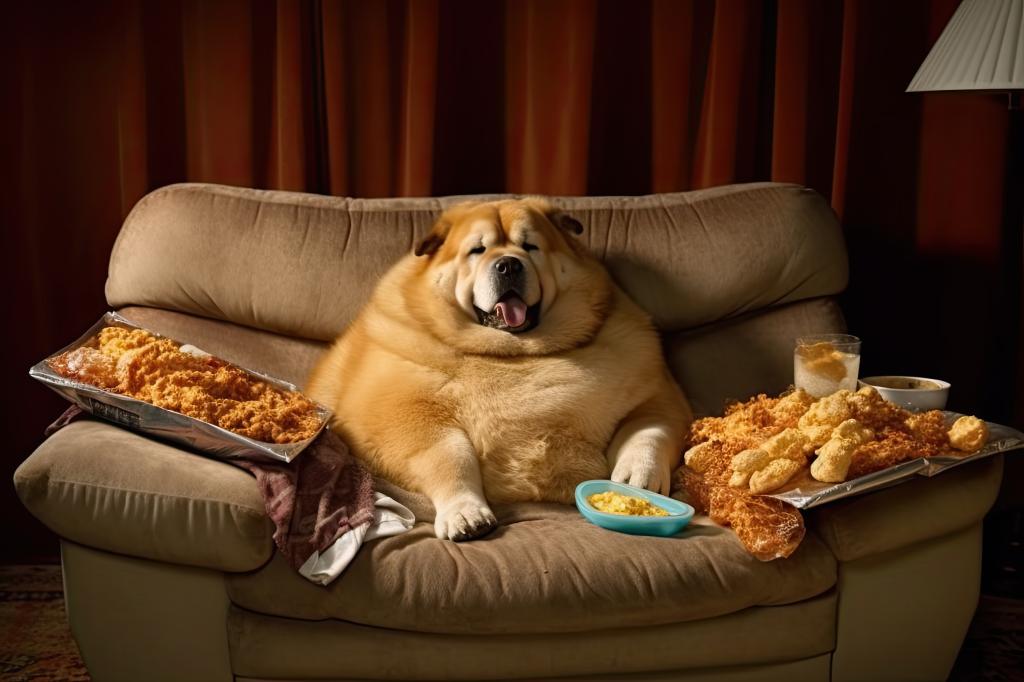A study by online store Pet Range has identified the top human foods that could be contributing to a dog’s weight gain. Many pet owners may unknowingly be feeding their dogs high-calorie human treats without considering the impact on their pet’s caloric intake. Small breeds, such as pugs, can easily consume a significant portion of their recommended daily calories from just a single sausage. The Association for Pet Obesity Prevention reports that over 50% of dogs in North America are overweight, which can lead to significant health issues for our furry companions.
It’s not that all human food is necessarily bad for dogs, but the issue lies in the lack of moderation in feeding. Dogs can easily overeat without realizing it, similar to how humans sometimes struggle with portion control. The impact of human food on a dog’s weight will depend on the size of the dog, with smaller breeds like chihuahuas and pugs having different calorie needs compared to larger breeds like dalmatians and labrador retrievers. It is important for pet owners to be mindful of their dog’s caloric intake and ensure they are feeding them balanced meals without excessive treats.
Popular human treats given to dogs such as leftover meat, bacon, sausages, roast chicken, and even eggs, can quickly add up in terms of calories for our canine companions. A small treat like a 10-gram whipped cream pup cup can still take up a significant portion of a small dog’s daily calorie intake. Obesity in dogs can lead to a variety of health issues, including problems with bone and heart health, as well as overall well-being. It’s crucial for pet owners to be aware of the calorie content of the treats they feed their dogs and to ensure that they are providing a balanced diet to prevent obesity.
Managing obesity in dogs can be challenging, so it’s important to be mindful of the human foods that are being fed to them. Pet owners should prioritize balanced meals and limit the amount of human treats given to their dogs. Consulting with a veterinarian is always a good idea if there are concerns about a dog’s weight or diet. Each dog is different and may have unique nutritional needs, so it’s important to seek professional advice before making significant changes to their diet. By being diligent about what we feed our furry friends, we can help them maintain a healthy weight and overall well-being.
The impact of overfeeding human food to dogs is significant, particularly for smaller breeds that can quickly consume a high percentage of their daily recommended calories from just a few treats. Pet owners need to be aware of their dog’s caloric needs and provide balanced meals to prevent obesity and related health issues. Consulting with a veterinarian can provide valuable guidance on managing a dog’s weight and nutritional needs. By being mindful of the treats we give our dogs and focusing on their overall health and well-being, we can help them lead happy and healthy lives.


